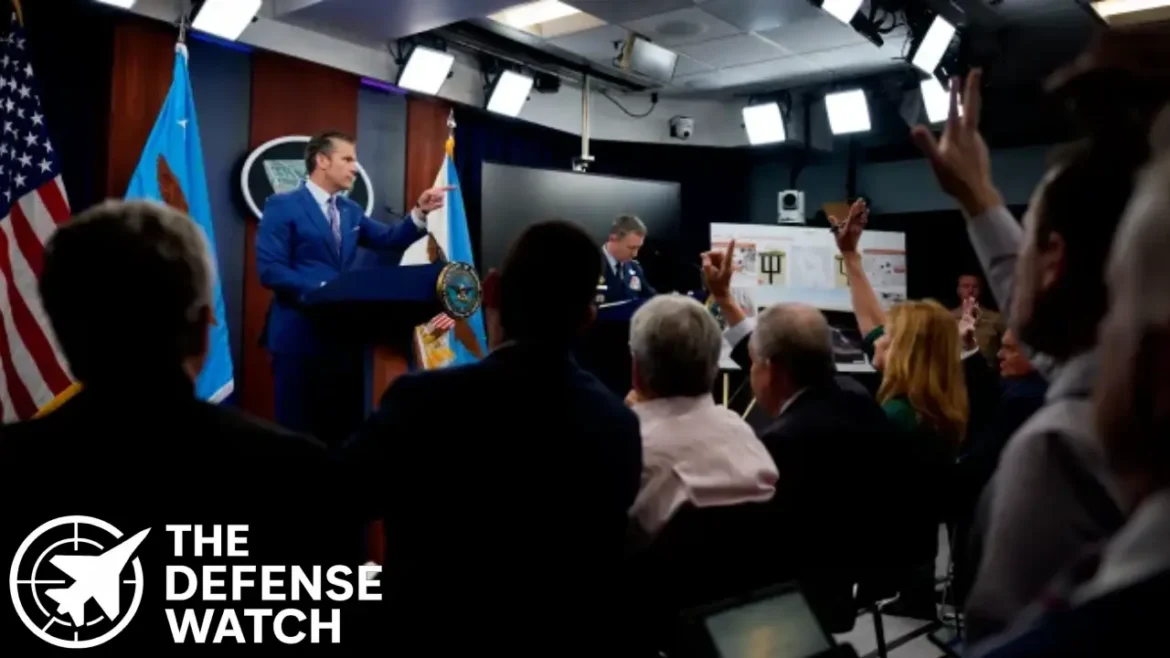What Happened: New Rules Take Effect Next Week
The Pentagon is set to enforce a new press access policy beginning next week, under the leadership of Defense Secretary Pete Hegseth. Under the revised rules, journalists covering U.S. military affairs risk having their Pentagon press credentials revoked if they fail to comply with the updated restrictions — even for reporting on unclassified information. The policy shift, announced this month, has triggered strong objections from press organizations and raised questions about the balance between transparency and security.
Background: Media Access at the Pentagon
For decades, the Pentagon has maintained a structured, though sometimes contentious, relationship with the press corps. Journalists assigned permanent Pentagon credentials have enjoyed access to briefings, designated workspaces, interview opportunities with Defense Department officials, and limited movement within certain zones of the complex—typically subject to coordination and security protocols.
Under prior administrations, rules explicitly prevented reporters from disclosing classified information but generally allowed coverage of unclassified material and permitted use of unnamed sources, within ethical and legal boundaries.
But the tenure of Secretary Hegseth has been accompanied by increasing tensions over leaks and information control. Earlier this year, the Pentagon imposed new escort requirements for reporters moving through large sections of the Defense Department building. In March 2025, a high-profile leak occurred when Hegseth shared classified operational details via a Signal group chat, which mistakenly included a journalist. That incident is widely viewed as a catalyst behind the current clampdown.
Policy Details and Media Reaction
Key Provisions of the New Rules
- Reporters will be required to affirm in writing their understanding of the DoD’s new rules as a condition for retaining their access—even if they do not explicitly agree with all aspects.
- The revised policy includes language that could permit credential revocation for “unauthorized access, attempted unauthorized access, or unauthorized disclosure” of classified information or “controlled unclassified information.”
- In early drafts, the policy had required reporters to pre-approve all published information with the Pentagon—even if unclassified—but that provision was removed in later versions after negotiations.
- The policy places constraints on movement inside the Pentagon; reporters may be relocated from their longtime workspaces, limiting informal contact with sources.
- While early drafts required reporters to explicitly agree to the rules, the version now mandates only an “affirmation of understanding” to hold credential status.
In response, the Pentagon Press Association (PPA) has condemned the policy as a “message of intimidation” that threatens press freedom. The PPA has also engaged legal counsel to explore potential challenges.
Major news organizations including The New York Times, The Washington Post, CNN, and The Atlantic have voiced public opposition, characterizing the new policy as an overreach that may chill critical reporting.
Pentagon spokesman Sean Parnell defended the changes, stating that access to the Pentagon is a privilege—not a right—and that the department is implementing “reasonable regulations” tied to security obligations. He emphasized that the department is not requiring story clearance but only asking reporters to confirm their understanding of information handling rules.
Expert and Policy Perspective
Legal and First Amendment scholars warn that some clauses in the policy resemble prior restraint by restricting publication of unapproved, unclassified information. The Reporters Committee for Freedom of the Press has raised particular concern over clauses that could criminalize typical newsgathering practices.
A former Pentagon press corps veteran, speaking on condition of anonymity, told media outlets that chilling access to unclassified reporting undermines the public’s ability to hold military leadership accountable. The veteran argued that strict vetting of communication with sources inside the DoD could reduce transparency around operational decisions, defense budgets, and oversight of military conduct.
Some legal analysts believe that the new policy may provoke court challenges on constitutional grounds. The PPA’s retention of legal counsel suggests the media may test whether revoking credentials for coverage of unapproved but non-classified information violates press protections.
What Comes Next: Impact and What to Watch
As the compliance deadline approaches next week, journalists face a difficult decision: affirm the new policy and maintain access or refuse and risk expulsion from Pentagon coverage. The outcome may precipitate legal challenges that test the boundaries of press freedom in national security settings.
In practical terms:
- Reporters may decline or limit engagement with sources inside the Pentagon, constraining investigative coverage.
- Some news organizations could pull their correspondents or reduce Pentagon staffing if credential risks are judged too great.
- The shift may contribute to broader erosion of transparency in defense policy, even beyond the Pentagon corridors.
- Congressional or judicial interventions may force revisions or block parts of the policy before full implementation.
The coming days will indicate whether this confrontation leads to negotiated amendment, legal rebuke, or a new precedent in U.S. defense-media relations.
Source 1 | Source 2 | Source 3
Get real time update about this post category directly on your device, subscribe now.


5 comments
[…] additional restrictions on media access compound these concerns, as defense journalists have faced limited briefings and fewer […]
[…] to policy documents obtained by media outlets, NASA has instructed industry to submit proposals for a lunar surface reactor capable of […]
[…] Global Policy Journal analysts argue that Russia’s legal reinterpretation of the plant’s status under annexation is […]
[…] DoD rules, operational communications must occur over approved secure channels; transmitting such information […]
[…] security, diplomatic relations, and trust within the defense industrial base. Contractors with access to sensitive material are bound by strict security rules and clearances. Breaches can lead to criminal prosecution, loss of clearance, and wide-ranging […]